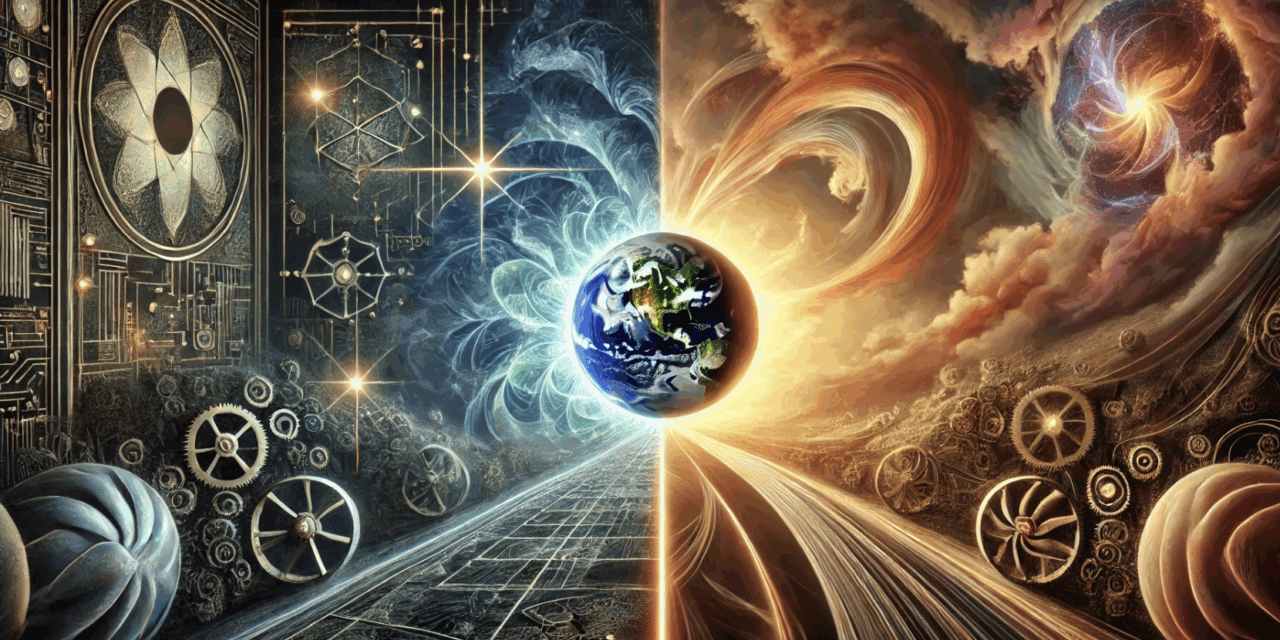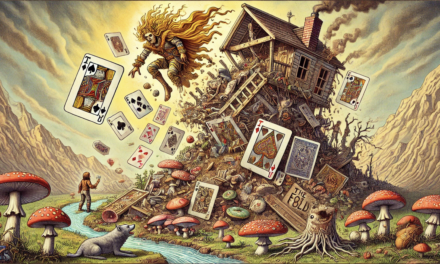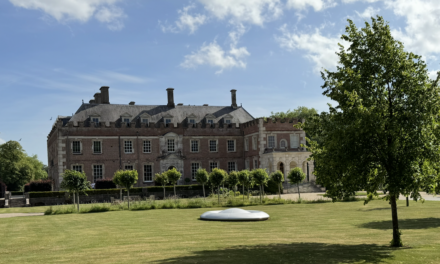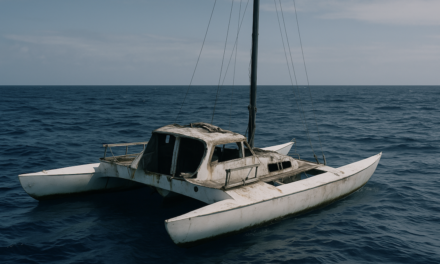Introduction
In The Matter With Things, Iain McGilchrist (2021) structures his monumental critique of modernity around four pathways to truth: reason, science, intuition, and imagination. While his insights about the hemispheric nature of consciousness are profound, the four-way division can feel artificially separate—as if these pathways operate independently rather than as interconnected aspects of human knowing. Wrestling with this apparent contradiction reveals something crucial about our current civilizational predicament: the problem is not the pathways themselves, but how modernity has institutionalized some while marginalizing others, creating what McGilchrist calls the Master and Emissary inversion at civilizational scale.
Jean Boulton’s work on complexity science offers a complementary lens that helps resolve this tension. In The Dao of Complexity, Boulton (2024) demonstrates how all forms of knowing emerge relationally through what she calls “complex responsive processes”—dynamic interactions within open systems that generate both stability and change through continuous feedback loops. Rather than separate faculties, McGilchrist’s four pathways can be understood as different degrees of cultural formalization within the same underlying relational field of human knowing.
This reframing reveals why the Master/Emissary problem is not simply a matter of cognitive balance, but a systemic breakdown in how civilisation itself processes information, makes decisions, and relates to its ecological foundation. The scale of humanity’s current challenge becomes clear: we face not just environmental crisis, but a metacrisis in our fundamental ways of knowing that has created what can be understood as a four-way recursive breakdown encompassing ideas, social patterns, events, and Earth’s ecosystems themselves (Rowson, 2021).
The Artificial Separation of Ways of Knowing
McGilchrist’s four pathways represent genuine aspects of human knowing, but their apparent separation reflects the analytical lens necessary for academic exposition rather than their actual interdependence. In lived experience, reason emerges from intuitive hunches, scientific discoveries arise through imaginative leaps, and rational analysis depends on embodied pattern recognition that operates below conscious awareness.
The distinction that matters is not between different types of knowing, but between different degrees of cultural formalization in how societies validate and institutionalize knowledge. Science has developed elaborate procedures—peer review, replication, formal methods, institutional structures. It represents the most systematized form of collective knowledge production in human history. Reason, as Mercier and Sperber (2017) argue, evolved as a social mechanism for argumentation rather than individual truth-seeking, manifesting in debate, democratic processes, and formal logic—less institutionalized than science but still possessing recognizable procedural structures.
Intuition and imagination, by contrast, operate through what Boulton (2024) would call “fluid, contextual processes.” They lack the same institutional apparatus but have their own forms of collective validation—the shared recognition when a group senses something emerging, the cultural transmission of archetypal patterns, the collective “knowing” that Jung (1969) described as arising from the collective unconscious. These are no less social than science and reason, but they resist the kind of systematic codification that modernity privileges.
The Formalisation Trap
This spectrum of formalisation explains why modernity has come to privilege science and reason over intuition and imagination. Formalized knowledge is scalable, teachable, replicable across cultures. It fits perfectly with modernity’s project of rational control and systematic progress. Universities can teach scientific method; democracies can institutionalize reasoned debate; corporations can systematize rational decision-making processes.
But this creates what we might call the “formalisation trap”—mistaking institutionalisability for primacy. Just because science and reason can be systematised doesn’t mean they should dominate all other forms of knowing. Their very systematisation makes them powerful servants but dangerous masters, precisely because they abstract away from the contextual, relational, embodied dimensions of reality that intuition and imagination naturally apprehend.
McGilchrist’s (2021) Master and Emissary metaphor captures this perfectly. The right hemisphere’s contextual, holistic, embodied knowing should provide the overarching framework within which the left hemisphere’s focused, systematic, analytical abilities operate. But modernity has inverted this relationship, allowing the Emissary’s systematising capacity to become the Master of its own domain.
Complexity Science and Relational Emergence
Boulton’s complexity science offers crucial insights into why this inversion is so problematic. Drawing on the thermodynamics of open systems, she shows how stable patterns emerge and persist through continuous exchange with their environment, maintained by relational feedback mechanisms between constituents. Crucially, these emergent patterns are always path-dependent—shaped by their particular history—and contextual—embedded within larger systems that constrain and enable their possibilities.
This process view of reality reveals that the very attempt to systematise knowledge completely is fundamentally misconceived. Complex systems cannot be fully predicted or controlled because their behaviour emerges from relationships that are always contextual and historically specific. The Master’s wisdom lies precisely in its capacity to apprehend these relational patterns, while the Emissary’s systematic approach necessarily abstracts away from the very relationships that generate emergent properties.
When Boulton (2024) notes the “remarkable resonance between complexity and Daoism,” she’s pointing to something profound: ancient wisdom traditions developed sophisticated understandings of how to work skilfully with emergent, interdependent, constantly changing realities. These traditions cultivated what we might call “meta-cognitive” capacities—ways of knowing that include awareness of the knower and the relational field within which knowing occurs.
The Civilizational Inversion
The Master/Emissary inversion is not just a problem of individual consciousness but a systemic feature of modern civilisation. Our dominant institutions—economic, political, educational, technological—are structured around the Emissary’s mode of operation: systematic, goal-oriented, focused on measurable outcomes, optimised for efficiency and growth.
Economic systems prioritise quantifiable metrics (GDP, profit, productivity) while treating ecological and social relationships as “externalities.” Political systems fragment complex, interdependent challenges into separate policy domains. Educational systems emphasise information transfer and technical skills while marginalising wisdom, ethical reasoning, and systems thinking. Technological development focuses on solving discrete problems without adequate attention to systemic consequences.
This institutional embedding of the Emissary’s mode creates what can be understood as a civilisational path-dependency. Centuries of privileging formalisable knowledge have created economic structures, political systems, and cultural patterns that now constrain what kinds of responses are possible to emerging crises. We cannot simply choose to rebalance the hemispheres because the entire infrastructure of modern society is optimised for the Emissary’s way of operating.
The Four-Way Recursive Breakdown
Understanding this civilisational inversion helps explain why we face what scholars increasingly call a “metacrisis”—not just multiple crises occurring simultaneously, but a crisis in our capacity to respond to crisis itself (Rowson, 2021). The problem can be mapped as a four-way recursive breakdown:
Ideas/Worldviews: The conceptual frameworks that guide civilisation (human exceptionalism, nature/culture separation, infinite growth on a finite planet) are increasingly inadequate for our actual situation, yet institutional and psychological investments in them create powerful resistance to change.
Social Patterns/Structures: Economic systems requiring endless growth collide with finite planetary resources. Political systems designed for nation-states struggle with inherently global challenges. Educational systems optimised for industrial society are mismatched to the complexity of contemporary challenges.
Events: The increasing frequency of “crisis events”—pandemics, climate disasters, economic disruptions, political upheavals—reflect underlying system stress rather than random occurrences. These events both result from and accelerate the breakdown of stabilizing patterns.
Earth’s Ecosystems: For the first time in human history, the cumulative effect of civilisational processes is destabilising the planetary systems that enable civilisation itself. The crossing of multiple planetary boundaries means Earth system processes are shifting toward new stable states that may be incompatible with current forms of human civilisation (Richardson et al., 2023; Steffen et al., 2015).
Each element recursively influences the others, creating feedback loops that amplify both problems and potential solutions. But the temporal mismatch between human decision-making cycles (years to decades) and ecological processes (decades to centuries) means that by the time ecosystem breakdown becomes undeniable, social and ideational changes may be too late to prevent civilizational collapse.
Why This Time Is Different
McGilchrist’s hemispheric analysis might suggest that this is simply another cyclical swing in the eternal tension between different modes of consciousness—that the pendulum will eventually swing back toward the Master’s wisdom as the costs of the Emissary’s dominance become apparent. But several factors make the current situation qualitatively different from previous cultural transformations:
Planetary Scale: Previous civilizational crises were regional, allowing for adaptation, migration, and learning from other successful societies. Today’s crisis is planetary in scope with nowhere to escape and no external examples of successful adaptation to our current predicament.
Absolute Boundaries: Previous resource crises were typically relative—societies depleted local resources but could expand to new territories or develop substitutes. Today’s crisis involves absolute planetary boundaries with no external frontier and no substitutes for a stable climate or functioning ecosystems.
Irreversibility: Many planetary system changes (climate tipping points, species extinctions, biogeochemical disruptions) are irreversible on timescales relevant to human civilization. Unlike previous cultural corrections, we cannot simply “return” to a previous state.
Temporal Acceleration: The pace of change is accelerating beyond human adaptive capacity. Our technological power means that breakdown events can cascade globally at unprecedented speed and scale, while our institutional capacity for collective learning and response remains limited by older, slower processes.
Systemic Integration: Modern civilisation is more systemically integrated than any previous human society. Global supply chains, financial networks, communication systems, and ecological disruptions mean that breakdown in one domain rapidly affects all others (Turchin, 2023).
Beyond Solutions: Hospicing Modernity
If the analysis above is correct, then responses focused on “solving” the crisis through better policies, technologies, or institutional reforms may be fundamentally inadequate. Such approaches typically operate within the Emissary’s mode—trying to systematically fix discrete problems without addressing the deeper pattern of civilizational overshoot.
An alternative framework emerges from what Vanessa Machado de Oliveira (2021) calls “hospicing modernity”—recognising that we may already be in irreversible civilisational breakdown and that our role is to participate skilfully in the composting of dysfunctional systems while midwifing whatever healthier patterns might emerge from the transformation. This framework invites us not only to innovate new systems but also to tenderly accompany the dying patterns of modernity, composting their residues into fertile soil for alternative ways of being.
Hospicing modernity requires what de Oliveira describes as facing our complicity as much as our creativity. The civilisational patterns breaking down are not external to us—they live within our bodies, our relationships, our ways of thinking and being. Transformation thus requires not just systemic innovation but also humility, grief, and unlearning. We must recognize how deeply we are embedded within the very systems we critique, and how our attempts to “solve” the crisis often reproduce the same patterns of control and extraction that created it.
This approach is more aligned with the Master’s wisdom because it works with emergent processes rather than trying to control outcomes. Like ecological succession after a forest fire, it recognizes that breakdown and regeneration are part of the same process, and that the most skilful response may be to facilitate healthy decomposition rather than trying to prevent change.
Boulton’s (2024) complexity science supports this perspective. In open systems far from equilibrium, new patterns can emerge spontaneously when existing structures become unstable. The current metacrisis may represent exactly the kind of far-from-equilibrium condition that enables entirely new forms of civilisational organisation to arise—but only if we can participate wisely in the transition rather than desperately trying to maintain unsustainable patterns.
Implications for Practice
This analysis suggests several shifts in how we approach contemporary challenges:
From Problem-Solving to Pattern Participation: Rather than treating symptoms in isolation, we need to develop capacity for what Boulton calls “process complexity” thinking—the ability to perceive and work skilfully with recursive dynamics across multiple scales and temporal horizons.
From Control to Navigation: In Vickers’ (1972) metaphor of “freedom in a rocking boat,” effective response requires continuous adjustment to changing conditions rather than rigid planning toward predetermined destinations. This demands cultivating what contemplative traditions call “responsive presence”—the capacity to act skilfully from moment to moment without predetermined agendas.
From Individual to Relational: Both McGilchrist and Boulton emphasise that consciousness and knowing are fundamentally relational phenomena. Addressing the metacrisis requires collective learning and response that transcends individual perspectives and institutional boundaries.
From Technical to Wisdom-Based: While technical knowledge remains important, the deeper challenge involves what Vickers (1972) called “learning what to want”—the cultivation of values, purposes, and ways of being adequate to our planetary moment. This cannot be reduced to information transfer but requires the integration of rational analysis with ethical cultivation and embodied wisdom.
Toward Meta-Level Innovation
The convergence of McGilchrist’s hemispheric insights with Boulton’s complexity science points toward what might be called “meta-level innovation”—new forms of thinking, organizing, and responding that can operate effectively within the four-way recursive dynamics of the metacrisis.
This involves developing institutional and cultural capacity for:
Temporal Integration: Practices and structures that can hold both immediate responsiveness and long-term sustainability, integrating the Emissary’s problem-solving abilities with the Master’s wisdom about consequences and relationships.
Scale Integration: Coordination mechanisms that can operate across local, regional, and planetary scales while respecting both the need for global cooperation and the importance of local adaptation and cultural diversity.
Recursive Awareness: The capacity to see and work with feedback loops rather than treating effects as causes, recognising how our responses to crisis become part of the crisis itself.
Adaptive Learning: Building resilience and capacity for continuous learning in the face of irreducible uncertainty, shifting from optimisation toward navigation and from control toward skilful participation.
Conclusion: The Scale of the Challenge
Wrestling with McGilchrist’s (2021) four ways to truth through the lens of Boulton’s (2024) complexity science reveals that humanity’s current challenge is not simply environmental, political, or economic, but civilisational in the deepest sense. We face a metacrisis in our fundamental ways of knowing that has created a systemic breakdown spanning ideas, social patterns, events, and Earth’s ecosystems themselves.
The Master/Emissary inversion is not just a cognitive problem but the deep structural cause of civilisational overshoot. For centuries, we have built economic, political, and cultural systems around the Emissary’s systematic, growth-oriented, short-term mode of operation while marginalising the Master’s contextual, relational, long-term wisdom. The result is a civilisation powerful enough to destabilise planetary systems but lacking the wisdom to live sustainably within them.
This analysis suggests that addressing the metacrisis requires not just better policies or technologies, but a fundamental transformation in consciousness—learning to participate skilfully in what de Oliveira (2021) calls the composting of modernity while cultivating whatever forms of human civilisation might be compatible with a thriving Earth system.
The scale of this challenge is unprecedented in human history, but so is our capacity for conscious evolution. Whether we can develop the wisdom and institutions adequate to our planetary moment remains an open question. What seems clear is that the transformation must be understood as both individual and collective, both practical and spiritual, both urgent and requiring the patience of geological time.
The convergence of ancient wisdom and contemporary complexity science offers hope that such transformation is possible. But it will require us to learn how to be fully human within the Earth community—a task that begins with transforming our relationship to knowing itself, allowing the Master’s wisdom to guide the Emissary’s remarkable abilities toward purposes worthy of our planetary moment.
In this sense, wrestling with McGilchrist’s four ways to truth becomes a pathway into the deepest questions of our time: How do we learn to think and act at the scale of our impact? How do we cultivate collective wisdom adequate to our technological power? How do we participate skilfully in the transformation of civilisation itself? These are not just intellectual puzzles but the defining challenges of our species’ next phase of evolution—challenges that will be met not through the Emissary’s systematic problem-solving alone, but through the integration of all our ways of knowing in service of life itself.
Terry Cooke-Davies, assisted by Claude from Anthropic AI and Aiden Cinnamon Tea from the GTDF Collective.
31st July 2025
References
Boulton, J. (2024). The Dao of complexity: Making sense and making waves in turbulent times. De Gruyter.
Jung, C. G. (1969). The archetypes and the collective unconscious (2nd ed.). Princeton University Press.
McGilchrist, I. (2021). The matter with things: Our brains, our delusions, and the unmaking of the world. Perspectiva Press.
Machado de Oliveira, V. (2021). Hospicing modernity: Facing humanity’s wrongs and the implications for social activism. North Atlantic Books.
Mercier, H., & Sperber, D. (2017). The enigma of reason. Harvard University Press.
Richardson, K., Steffen, W., Lucht, W., Bendtsen, J., Cornell, S. E., Donges, J. F., Drüke, M., Fetzer, I., Bala, G., von Bloh, W., Feulner, G., Fiedler, S., Gerten, D., Gleeson, T., Hofmann, M., Huiskamp, W., Kummu, M., Mohan, C., Nogués-Bravo, D., Petri, S., Porkka, M., Rahmstorf, S., Schaphoff, S., Thonicke, K., Tobian, A., Virkki, V., Wang-Erlandsson, L., Weber, L., & Rockström, J. (2023). Earth beyond six of nine planetary boundaries. Science Advances, 9(37), eadh2458.
Rowson, J. (2021). How to think about the meta-crisis without getting too excited. Emerge. Retrieved from https://www.whatisemerging.com/opinions/how-to-think-about-the-meta-crisis-without-getting-too-excited
Steffen, W., Richardson, K., Rockström, J., Cornell, S. E., Fetzer, I., Bennett, E. M., Biggs, R., Carpenter, S. R., de Vries, W., de Wit, C. A., Folke, C., Gerten, D., Heinke, J., Mace, G. M., Persson, L. M., Ramanathan, V., Reyers, B., & Sörlin, S. (2015). Planetary boundaries: Guiding human development on a changing planet. Science, 347(6223), 1259855.
Turchin, P. (2023). End times: Elites, counter-elites, and the path of political disintegration. Allen Lane.
Vickers, G. (1972). Freedom in a rocking boat: Changing values in an unstable society. Allen Lane.






